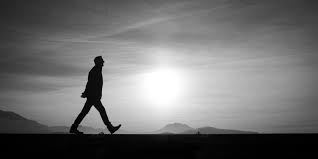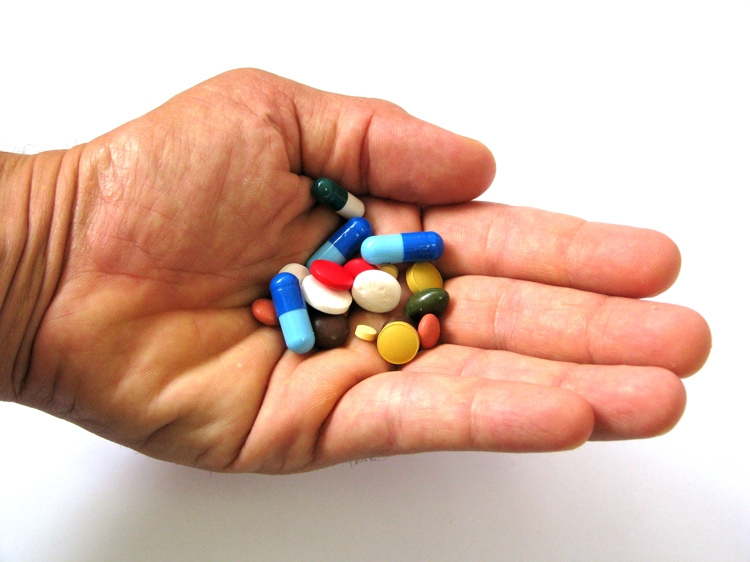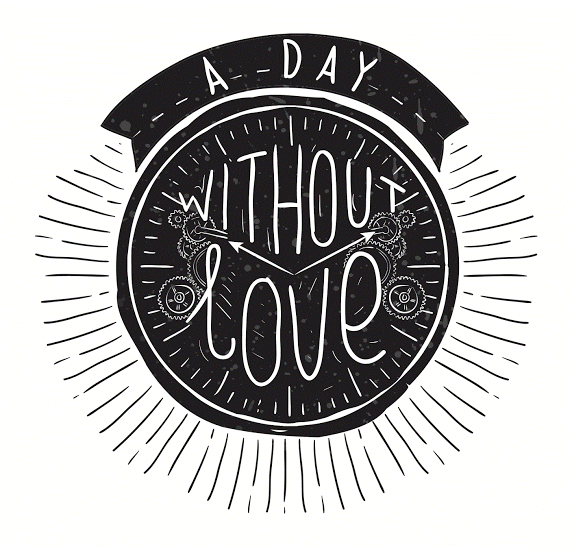In our latest submission in the Coping series, we have the story of Brian:
Depression came to me before I was aware of it. The first time I felt out of place was in kindergarten when I waited for my mother to pick me up from school. I lived right across the street from my school, and my grandmother would meet up with me to walk across the street. Things started to change when I was told that my Mother would pick me up. At the time, this was important to me because my relationship with my Mother was distant. My Mother didn’t really do much for me, and treated me like I did not exist. When I found out that she was going to pick me up from school, it meant the world to me, even though I was not aware that this would be the beginning of feeling like an outsider. My mother suffers from cerebral palsy and has a walking impediment. As you would guess, this was a challenge due to the public perception of disability in 1992.

Brian’s grandparents
When my Mother walked me home, I noticed that people started to stare at me like an outcast. I did not know what this feeling meant, but it was uncomfortable. I recall that the cheerful and energetic boy that I once was absent. I was hurt by the looks of other people’s faces, and the way that they looked at my mother. I didn’t feel like it was okay to be here in this world. I felt like everything was wrong and I could do nothing to make things right.
The following day, children started to mock my mother and ask me why I did not walk like my mother did. They asked if I would become like my mother. Some kids even called me “retarded.” I no longer was just another kid who attended the public school system. I became a victim to bullying. That day was the beginning of the rest of my life; I became the kid that no one liked.
Unfortunately, making fun of my Mother was only the start. Kids made fun of me for the mole on my face, for doing well in school, and for being a nice person. This bullying never stopped; it continued for the rest of my life.

After Kindergarten, I transitioned into the catholic school system for eight years. During this eight year span, I learned that I was generally not liked by kids my own age. No matter where I went, whether it be my neighborhood, school, or church, I was considered an outcast, and was a victim of bullying. The neighborhood and church kids made fun of me for speaking properly. The catholic school kids made fun of me for trying hard and doing well in school. This was only the beginning of feeling inadequate. These catholic school years should have been formative and constructive years, but instead these years were the years I found low self-esteem and self-doubt.
When I was in school, kids made fun of me for trying hard and excelling in school. I attended speech therapy in the 2nd grade; the neighborhood and church kids would make fun of me for speaking “white and proper.” No matter where I went I felt that people sought a way to rip me a part. If it was not my intelligence, it was my face. If it was not my face it was my body. I did not have a safe space; even my family members treated me like a black sheep. My elementary school years are considered the time I developed an identity crisis of being too black for the white kids, and too white for the black kids. I didn’t know where to fit in. I had nowhere to go except for a book.
When I was in my middle school years, I made some friends, but the bullying never ended. It got worse for all the same reasons. Catholic school middle dances were the place where I learned that the wall was my place of comfort. The game spin the bottle was a girl’s worst nightmare when the bottle was spun on me. Instead of being kissed, I was skipped. Finding approval from the opposite sex was not my only problem. I started to gain weight and became one of the many overweight children of the 90s. I picked up martial arts, and even during my martial arts training I was made fun of and called “cheesesteak boy.” I started to develop body image problems; my self-worth was reaching a new low, and my hopes for making things better in high school did not look very bright.

High school was not much better at this point of my life, and I developed a guilty complex. I felt that no one could care about my existence, and that everything I did was wrong, even if I was sure that I did the right thing. The world was not exactly my oyster. Instead, it was a cruel place where people reminded me of how much I didn’t mean anything to anybody.
At the age of 16, I found a new interest in Psychology. I liked this topic because it was a study of human behavior. I had an interest in why people acted the way that they acted. You could only imagine after 16 years of rejection, bullying and pain, I was more interested in why were people so mean.
Psychology class with my teacher was the best thing I had to look forward to every week. By this time in my life, I had lost weight, excelled in school, I had a healthy relationship with my Taekwon Do community and I competed. I had friends, but I was still bullied. I was treated like a disease by people and I just did not feel good about myself at all after years of going through bullying. This class was the class I found out I had a problem.
I ended up in a lot of arguments in this class. These arguments turned to harassments, which almost turned to fist fights. I almost fought a kid who put me in the corner for caring too much about my course work. I flipped out at him and my Psychology professor said that we needed to schedule some one on one time with each other next week to talk. I knew it had nothing to do with how I was doing in the class, but more about my behavior. After arguing with this kid, I started to think about killing myself. I wanted to die. I didn’t know why I wanted to die and I had no plan, I just was tired of existing. I was tired of not having a place to feel comfortable.
I just wanted to die.
The weekend before I met with my Psychology professor, I got very drunk with some friends, went home, looked into my bathroom medicine cabinet, chugged a bottle of mouthwash, downed an unknown combination of my grandparents medicine pills, called my friend Jim, and told him it was nice to know him. I started to hallucinate, went to sleep, and woke up disappointed that God had given me another day to live.
The following Monday, my friend Jim called me out about what I did. He thought it was funny that I chugged mouthwash and told my other friends at lunch. I frowned, and eventually told him and four of my other friends the truth. I told them that I did not feel right and I wanted to kill myself. I told them I had thoughts of bringing a gun to school and killing myself. I knew it wasn’t okay, and they were the only ones I knew I could talk to about this. My other friend Dan, suggested that I go to the guidance counselor. This day was the beginning of my emotional recovery.
During the week after I attempted suicide, I spoke to my guidance counselor and psychology professor. My guidance counselor scheduled biweekly meetings with me, and my professor referred me to a therapist. My grandparents were in a state of shock and disbelief about my state of emotional depression. However, they were supportive, and did everything they could to help me recover. They hoped that I could become the energetic young boy they once knew at the age of five. I never could become that boy again, and things started to become more difficult.
You would think weekly meetings with your guidance counselor and a therapist would be the end to fighting depression, but it wasn’t. I was diagnosed with bipolar disorder and given various medications. The pills did nothing but destroy my mind and hurt my perceptions of the relationships I did have. Things did not work for the better; they became worse.
Fortunately I graduated high school with a high GPA and transitioned into one of the top Engineering schools in Pennsylvania, Lehigh University. I eventually left the medication and therapy, increased the drinking, found more bullies in college, and experienced more rejection from women. I ended up trying to attempt suicide again. Except this time there were greater consequences; I had been suspended and put on a hiatus with the terms that I had to recover.

I worked at a doctor’s office for a few months and attended therapy sessions three times a week. I finished my first book, “The Hurt, The Horny, The High School Nerd” and I slowly developed new coping mechanisms with my depression. I became a new person, and slowly started to recover from this crippling sickness. However, this was not the end to my depression.
It was the beginning to my management of depression.
I left Lehigh University two semesters after returning and transferred over to Penn State to pursue a degree in Psychology. I left the field of engineering because I was simply more interested in human behavior. I stopped therapy, picked up the guitar and worked on poetry to focus as an outlet to my pain. This was a positive outlet; however I also started to use alcohol as way to cope with times that I felt lonely. On the surface things started to get better, but my depression reached new lows.
I started my first solo project called A Day Without Love. The band was based on a poem I wrote during my time at Lehigh University when I saw an episode of spousal abuse. I wanted to share my story of depression, pain and suffering, and write records to help people relate to me. I started a music organization called The Penn State Songwriter’s club which was about getting musicians to network together for charity, community, and collaboration. My life started to become busy and productive. Still, the feeling of worthlessness lingered.
Therapy was not a part of my life. I used alcohol as a way to cope with my struggles. I felt worthless, and I let my past experience with bullying torment my feelings of self-worth. Even when I was accepted by my social circles I still found a way to feel that I didn’t matter to other people. The traditional relationship was not a part of my life. I had one girlfriend during college, and she left me when my great grandmother died, saying that I was “too emotional” and “needed to get over myself.” I engaged in a lot of one night stands and detached relationships that were only based on sex. Whenever I felt depressed, I overdrank and found myself at the bottom of a toilet.
I got into arguments, fights, and lost many friends in college. I made as many friends as I lost and many would have probably have considered myself a lost person. My actions did not match with my feelings. I was delusional.
This behavior continued into graduate school when I moved to Long Island, New York at Hofstra University to pursue a master’s degree. My depression episodes still continued, and I used alcohol as a coping mechanism. I experienced my first earthly disaster at this time, Hurricane Sandy. I was homeless for 17 days during this time and felt useless. I didn’t have access to a shower and I lost faith in the world. I wanted to kill myself. Fortunately I did not because I used music as an outlet and wrote my debut studio record, titled Island. The record contained themes about isolation and bystander apathy. I started to feel that people did not care when others were faced with struggle and saw the pain of others.

Brian and a friend jamming.
During my two years of grad school, I became distant from my cohorts. I separated myself from them because I recognized that they had different values than I did. I had a problem with feeling like I mattered in this world. I grew insecure of whether or not my degree would help people. The only times I did find happiness is when I helped others. They were focused on material things and doing the best that they could to work in big business.
The end of grad school started to feel like everyone I met was against me and I didn’t have any chance of becoming a part of the in-group. I ended up spending more of my weekends with strangers in New York City in random bars. If I didn’t find friends in bars, I spent my weekends in Philadelphia, developing myself as an artist, and sleeping on friends couches. I didn’t feel like I had a permanent home. I felt that my life was leading nowhere and that it didn’t matter if I lived or not.
When graduate school was over, I spent the next two years of my life working in the corporate world in the Human Resources and Consulting realm. I became the very thing that I hated; a corporate alcoholic who stopped living and ignored his dreams. I continued to play music, but I didn’t feel that what I was playing was the music that was in my heart. There were times I had to compromise my work life for my music life for the sake of money. I didn’t like having to make my work life a priority over my passions. I reached rock bottom and I felt that life pushed me in a corner.
2015 became a year of change for me; I was tired of being backed into a wall and I wanted to change. My grandfather was diagnosed with stage 4 lung cancer and died in November. I lost my consulting gig which provided all of my financial security. Lastly, I started to lose friends who either moved to a different city for career goals or to other relationships. I began to feel hopeless, but the one thing that I didn’t lose was music and the ability to live another day. I needed to make a change for myself.
I gave up alcohol to give myself a chance to clear my own head. I started to travel and tour the country, finding a really cool band mate who plays music with me. I got to play South by Southwest (SXSW) and was signed to Sounds and Tones Records. I started to write a record for my band, A Day Without Love, entitled Solace, which I recorded in early 2016. The record is about finding comfort in suffering, and I am working with Erika’s Lighthouse: a nonprofit to raise funds on depression awareness. I am also working on writing a book entitled, “I Am Depressed, but I am Human Too,” which is a more detailed explanation of my depression story and how I came to grips to being able to cope with these problems. I started to learn that my creativity could be used to help others, which is what started to make me feel good about myself.

2015 was not just a year of creative output and learning to live. I started to wake up and realize that my depression won’t go away. There will be days that I will want to hurt myself, and there will be days that I won’t feel worthless, but I am finding a way to change. I will use art to help others get out of the darkness and I thank my friends and my support group for staying with me, because without them, I wouldn’t be able to continue to change to see better days.

To hear Brian’s music, check out A Day Without Love on various music streaming services, and his Bandcamp, here.
Remember, you are not alone.
And you are loved.
-DK
Want to submit to this site and share your story, art, or article related to mental health or mental illness? Email wemustbebroken@gmail.com

A very moving story. It’s hard to control depression, and Brian’s honesty and openness about his struggles helps in showing others in a similar place that they are not alone. I wish you more strength Brian.
LikeLiked by 1 person